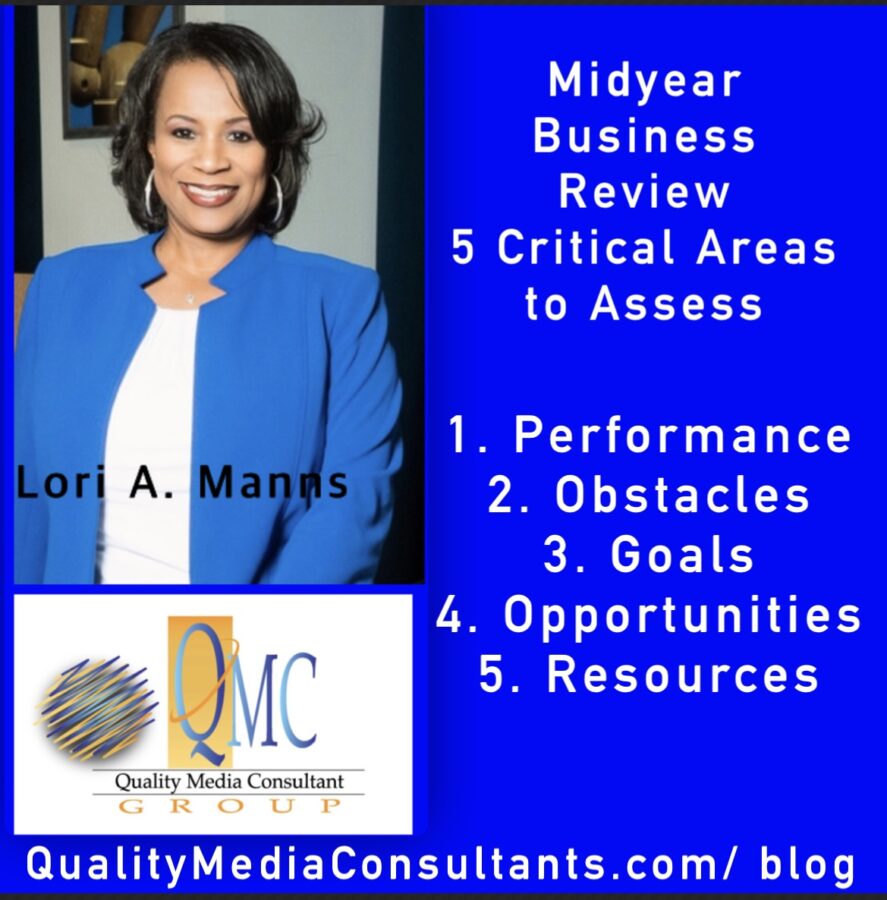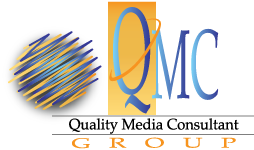
A midyear business review is a quality, comprehensive and complete analysis and status update that serves as a plan for the remainder of the calendar or fiscal year for a company or organization. Completing a midyear business review makes the planning process easier and breathes new life into your business plan and process for growth and development. Once you have done a mid year business review, you are able to update your business plan and make changes easily if needed.
There are many reasons why you should NOT wait until the end of the year to conduct a review and assessment of your business performance.
For the purpose of brevity, we will only cover the top three reasons NOT to wait longer than six months for a review.
Reason #1
One year is a long time wait to review how things are going. In fact, it’s too long. Although time flies, there is a lot that can happen in 365 days, both good and bad. Therefore, if something is working, it’s best to know how well it’s working so more can be done to support what works. On the contrary, if something is not working, it’s best to know why so it can be addressed before more damage is done.
Reason #2
Correcting problems is much easier if you have reviewed areas of concern or challenges regularly. A midyear review supports the process of a six month review that can catch issues before they have reached the point of no return.
Reason #3
Communication is key. Many times, if there are consistent reviews in place, it forces communication about processes and procedures that may need adjustment when it comes to employees, operations, sales, systems, collaboration partners and much more.
There are five critical areas of assessment that should be considered when performing a midyear business review.
1. Performance
Analyzing your performance is the #1 reason why you need to do a mid-year business review. The fact is, it’s important to know how well you are doing and what needs to be done differently. You must understand whether or not you are on track to reach your goals or not. You have to ask yourself the hard questions that force you to look at the facts. How close am I to reaching XYZ goal? Am I on track to reach this goal or is it likely not to happen? Do I have all of the tools needed to reach XYZ goal? What am I missing? What do I need to change or fix immediately in order to ensure that I hit XYZ goal? Taking a hard look at these answers will give you the big picture and help you to determine what you need to address.
“
2. Obstacles
There are many hindrances that can happen to stop or deter you from reaching your goals or achieving the accomplishments you set out to do. The most important to figure out when it comes to obstacles is what is not working and why. Additionally, you must understand if the obstacle is a problem that is internal (within your control), or external (outside your control). Either way, you must devise a solution-based plan to get the obstacle addressed so you can move forward. A great way to attack an obstacle is to consider at least three possible scenarios to overcome it and then to go with the scenario that provides the best possible outcome.
“
“Business goals must be FLUID to allow for changes throughout the year.” Dr. Lori A. Manns
3. Goals
Our goals should be fluid because they will change over time. It’s important not to be so rigid with your goals that you approach them as if they are set in stone. Your goals may need to be reassessed every quarter, and that’s okay. Don’t define your success only by whether or not you have reached your goals. Rather define your success by how far you have progressed in the pursuit of your goals. There are three types of goals: short-term goals, that are immediate, long-term goals that are for the future, and blue-sky goals that are stretch goals meaning they will require something phenomenal to occur.
4. Opportunities
When we are analyzing our businesses, it’s important to look at opportunities for improvement in key areas. There are many factors that can change within a year’s time or six months’ timeframe. Consider this, have there been changes in the market, economy, technology, compliance regulations, competition, to name a few. It’s important to perform a S.W.O.T. Analysis so you are fully aware of your opportunities whether they are short-term or long-term.
5. Resources
The need to prioritize resources is necessary when it comes to analyzing our businesses for a midyear review. The key questions you must answer include what resources you have available and what resources you do not have available. You must know the resources that are working best for you as well as the resources required to help you have a better chance of hitting your goals. For example: Do you need to hire a bookkeeper or CPA to help you keep better financials? Do you need to hire a business coach to help you with growth and expansion? Do you need a marketing consultant to help you marketing or branding strategy? Figure out what resources can lead you down the path of more productivity and prosperity.
In summary, when you are performing a midyear business review, it’s important to think about next steps. You must develop an action plan for what you want to do in the next month, quarter, and year. Don’t just use general terms to talk about your goals. Be specific and outline everything you want to accomplish and why. Figure out who can help you achieve your goals and the best route you should take to get there.
Want to use this article for your blog or business website? Here’s the author’s box that you must include.
© 2023 Quality Media Consultant Group LLC – All Rights Reserved
This article was written by Lori A. Manns. President of Quality Media Consultant Group. Lori is a multi-award-winning marketing mentor, sales coach, and trailblazing business strategist who works with small business owners and entrepreneurs to help them grow and scale their businesses. She specializes in sales and marketing strategies that result in her clients attracting their target market, gaining brand visibility, and growing revenue. Lori is the President of Quality Media Consultant Group, a consultancy firm specializing in media, advertising, marketing, and sales. She is the founder of the Trailblazer Business Academy. where advancing entrepreneurs go to learn growth strategies and how to run a profitable business the soulful way. Lori is also the creator of the Sponsorship Sales Secrets.

